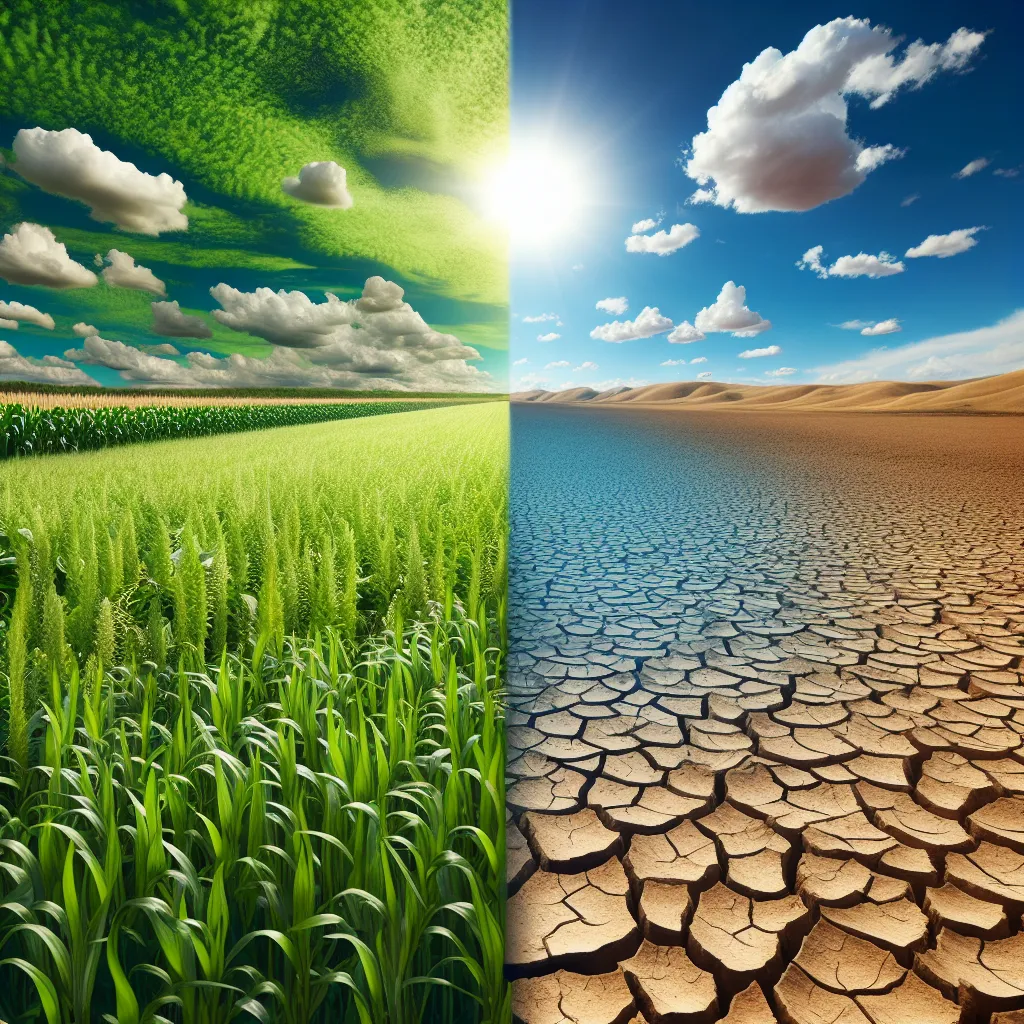Climate change and its impact on agriculture is a critical topic that frequently appears in IELTS Writing Task 2 exams. Based on recent trends and the growing global concern about environmental issues, we can expect this theme to remain prevalent in future tests. Let’s explore a sample question and learn how to craft an effective response.

Analyzing the Task
Let’s consider the following IELTS Writing Task 2 question:
Climate change is having a significant impact on agriculture worldwide. What are the main effects of this phenomenon, and what measures can be taken to address these challenges?
This question requires us to discuss two main points:
- The primary effects of climate change on agriculture
- Potential solutions to mitigate these effects
It’s crucial to address both parts of the question equally to achieve a high band score.
Sample Essay
Here’s a sample essay that addresses the given question:
Climate change has become one of the most pressing issues of our time, with its effects reverberating across various sectors, particularly agriculture. This essay will explore the main impacts of climate change on farming practices and propose measures to tackle these challenges.
The primary effects of climate change on agriculture are manifold and severe. Firstly, rising temperatures are altering growing seasons and crop yields. Many regions are experiencing longer periods of drought, leading to crop failures and reduced productivity. Conversely, other areas are facing increased rainfall and flooding, which can damage crops and erode fertile soil. Moreover, changing weather patterns are disrupting the delicate balance of ecosystems, leading to the proliferation of pests and diseases that can devastate entire harvests.
To address these challenges, a multi-faceted approach is necessary. One crucial measure is the development and adoption of climate-resilient crop varieties. These genetically modified or selectively bred plants can withstand higher temperatures, require less water, and resist new pests and diseases. Additionally, implementing advanced irrigation systems and water management techniques can help farmers cope with irregular rainfall patterns and conserve water resources.
Furthermore, governments and international organizations should invest in research and development of sustainable farming practices. This includes promoting crop rotation, no-till farming, and the use of cover crops to enhance soil health and reduce erosion. Education and training programs for farmers are also essential to help them adapt to new agricultural techniques and technologies.
On a global scale, reducing greenhouse gas emissions is paramount to mitigating the long-term effects of climate change on agriculture. This requires a concerted effort from all sectors of society, including the adoption of renewable energy sources, improved energy efficiency, and sustainable transportation systems.
In conclusion, while the impacts of climate change on agriculture are severe and far-reaching, there are various measures that can be implemented to address these challenges. By combining technological innovation, sustainable practices, and global cooperation, we can work towards ensuring food security in the face of a changing climate.
(Word count: 309)
Writing Tips
When tackling this topic in IELTS Writing Task 2, keep the following points in mind:
-
Structure: Ensure your essay has a clear introduction, body paragraphs, and conclusion. Each body paragraph should focus on a specific point.
-
Balance: Address both parts of the question equally – discuss the effects and the solutions.
-
Specific examples: Use concrete examples to support your points. This demonstrates a deeper understanding of the topic.
-
Cohesion: Use linking words and phrases to connect your ideas smoothly. For example, “Furthermore,” “Moreover,” “In addition.”
-
Vocabulary: Employ a range of topic-specific vocabulary to showcase your language proficiency.
Key Vocabulary
Here are some essential words and phrases related to climate change and agriculture:
-
Climate-resilient (adjective) /ˈklaɪmət rɪˈzɪljənt/: Able to withstand or recover quickly from difficult climate conditions.
-
Crop yield (noun) /krɒp jiːld/: The amount of crop produced per unit of land.
-
Sustainable farming (noun phrase) /səˈsteɪnəbl ˈfɑːmɪŋ/: Agricultural practices that can be maintained without depleting natural resources.
-
Greenhouse gas emissions (noun phrase) /ˈɡriːnhaʊs ɡæs ɪˈmɪʃənz/: The release of gases that contribute to global warming.
-
Drought-resistant (adjective) /draʊt rɪˈzɪstənt/: Able to survive with little water.
-
Soil erosion (noun phrase) /sɔɪl ɪˈrəʊʒən/: The wearing away of topsoil by natural forces like wind or water.
-
Food security (noun phrase) /fuːd sɪˈkjʊərəti/: The state of having reliable access to sufficient, affordable, nutritious food.
Conclusion
Climate change’s impact on agriculture is a complex and crucial topic that is likely to appear in future IELTS Writing Task 2 exams. By understanding the key issues and practicing with sample questions, you can prepare yourself to write a comprehensive and well-structured essay. Remember to balance your discussion of effects and solutions, use specific examples, and incorporate relevant vocabulary to achieve a high band score.
For further practice, consider exploring related topics such as:
- The role of technology in sustainable agriculture
- The economic impacts of climate change on farming communities
- Global food security in the face of climate change
- The importance of biodiversity in agricultural resilience
By mastering this topic, you’ll be well-prepared to tackle a range of environmental and agricultural themes in your IELTS Writing Task 2 exam.
For more information on the effects of climate change on agriculture, you can check out these comprehensive resources on climate change and global agriculture and detailed analysis of climate change impacts on agricultural productivity.